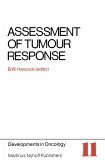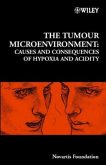Devil facial tumour disease (DFTD) is an aggressive non-viral transmissible parasitic cancer that affects Tasmanian Devils. The first "official case" was described in 1996, in Australia. In the subsequent decade the disease ravaged Tasmania's wild devils, with estimates of decline ranging from 20% to as much as a 50% of the devil population, across over 65% of the state. Affected high-density populations suffer up to 100% mortality in 12 18 months. The disease has mainly been concentrated in Tasmania's eastern half. Visible signs of DFTD begin with lesions and lumps around the mouth. These develop into cancerous tumours that may spread from the face to the entire body. The tumours interfere with feeding, and the affected animal may starve to death. Transmissible cancer, caused by a clone of malignant cells rather than a virus, is extremely rare. The only other known type is canine transmissible venereal tumour (CTVT), which is spread in dogs through sexual activity and has been known to science for about 100 years.







